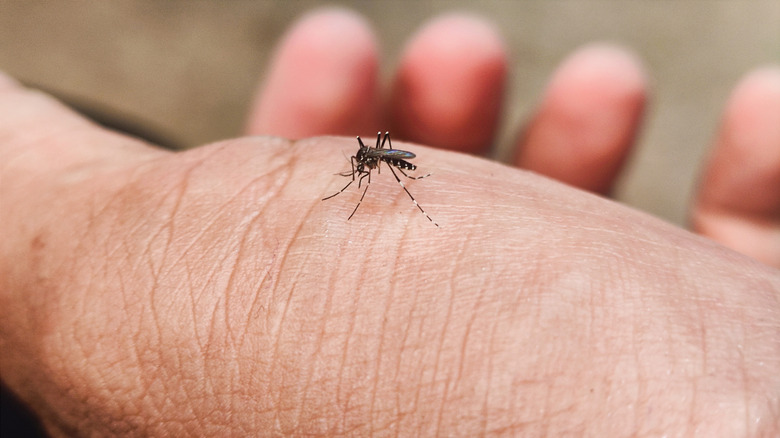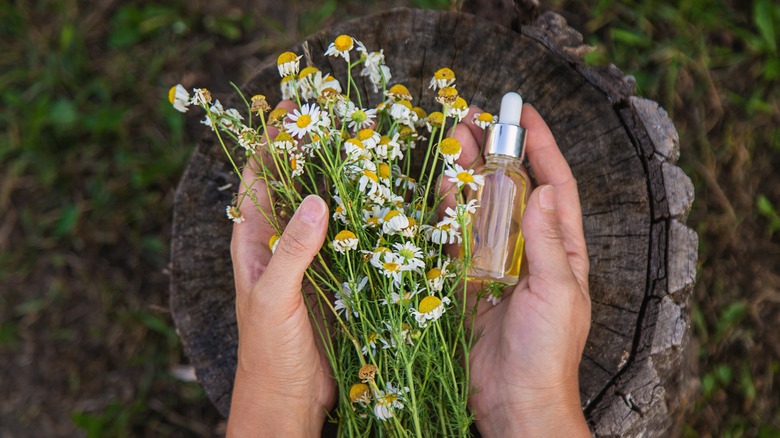Use One Sweet Fragrance To Drive Mosquitoes Away Naturally
Mosquitoes can easily ruin any outdoor activity. Not only can they leave itchy bites in their wake, but there's also the risk of deadly diseases to worry about. As a general rule of thumb, the Centers for Disease Control and Prevention (CDC) recommends using an insect repellent registered with the Environmental Protection Agency (EPA) to guarantee safety and efficacy. But if you're not thrilled about common active ingredients, such as DEET or picaridin, you may have some alternate options. For example, you might consider ways to repel mosquitoes naturally with a little-known essential oil trick. Chamomile is one of the essential oil options worth considering if you're looking to try a more natural approach to repelling mosquitoes, but there are also some caveats to keep in mind.
Chamomile essential oil is made with extracts from flowers of the chamomile plant. Historically, the oil has been used for a variety of medicinal purposes, such as anxiety relief, wound healing, and pain management. As interest in essential oils continues to grow, so has some of the research involved in extracts like chamomile. Not only does this sweet-smelling garden herb help naturally repel wasps, but the essential oil may repel these insects due to their dislike of the fragrance.
For example, a 2019 Malaria Journal systematic review reported that the results of using multiple essential oils against marsh mosquitoes had repellency rates of up to eight hours, including chamomile. More recent research into different types of chamomile extracts found that their efficacy against mosquitoes may be as effective as DEET. Still, the evidence is ongoing, so you might not rely on chamomile as your sole mosquito management solution.
How to use chamomile to help repel mosquitoes, and caveats to consider
As a mosquito repellent, chamomile essential oil must first be diluted. Consider adding up to 15 drops of the oil per 1 oz of water in a glass spray bottle for the best results. Before spraying the product all over your body, you might consider testing a small, inconspicuous area of skin, such as the inside of your elbow. If no skin irritation develops after 48 hours, you should be in the clear to use the chamomile repellent on a more widespread basis.
It's important to note that chamomile essential oils are not currently recommended by health agencies for mosquito-repelling purposes. These include both the CDC and EPA, who argue that evidence supporting natural repellents has not yet been established. While some EPA-registered repellants may possibly contain essential oils like chamomile at some point in the future, other ingredients are currently used in unregistered products. Examples include citronella, peppermint, and cedar oils. When shopping for chamomile essential oil, make sure the product labels clearly state the ingredients so you don't inadvertently use a multi-ingredient product.
If you'd still rather use an essential-oil-containing product, your best bet is to use it in combination with other mosquito-deterring practices, such as wearing long sleeves and pants when you're outdoors. You'll also want to avoid the common mistakes that are attracting mosquitoes to your yard, such as leaving standing water in your yard and planting mosquito-attracting plants and flowers. If you're still getting bitten by mosquitoes despite using chamomile, consider trying another method.

